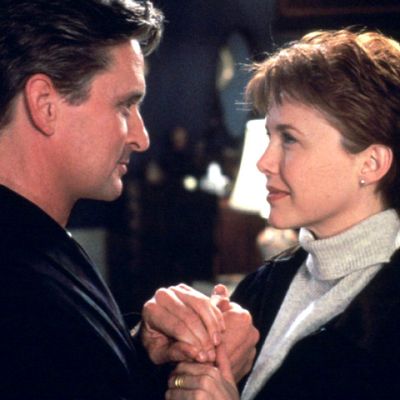
Among the criticisms leveled against The Newsroom is that it relies upon two very familiar, Sorkinian Will They or Won’t They relationships: Jeff Daniels and Emily Mortimer’s characters are exes who can’t get over the other (even as they trot new paramours around the office); and a newbie producer (Alison Pill) and her new seasoned colleague (John Gallagher Jr. ) are locked in a network love triangle. The former couple airs out its grievances in companywide e-mails and control-room shouting matches, while the latter bonds over forgotten Xanax and recollections from Fallujah. They are all very obviously in love. They will also not get together anytime soon. This is how most romance on television works, of course, but Aaron Sorkin is famously resistant to happy relationships, throwing girls named Pixley and other emotionally calamitous plot devices between his perfectly matched love birds. On a weekly basis, this can become tiring — especially since Sorkin recycles character and relationship patterns from show to show. (We’ve seen Newsroom’s fight before, when they were on Sports Night.) But there is a genre that rewards repetition in romantic bickering, and it has fallen on hard times itself. So Vulture would like to offer a simple suggestion: Why doesn’t Sorkin go back to writing rom-coms?
Hear us out. The genre hasn’t exactly been thriving of late, owing to dwindling studio interest and plain lack of quality. (See Valentine’s Day and its many sad spinoffs.) Sorkin has the credentials. His feature-length rom-com, The American President, is a ninteties classic, a delightful D.C. face-off that manages to hit all his favorite themes (patriotism, workplace camaraderie, Republicans who can’t speak good) without exhausting the audience’s patience. And Sorkin clearly relishes the structure — he loves a good romantic build-up, with warp-speed fights and sad stares of office longing. He writes them again and again. On television, this type of storytelling can feel outdated, or even lazy; in a rom-com, it is a measure of success. We look for the template; we expect 89 minutes of snappy bickering and a happy ending.
After seven seasons of Sorkin TV (West Wing seasons five through seven don’t count) and countless broken relationships, the happy ending is key here. Josh and Donna, Dana and Casey, Andy and Toby, C.J. and Simon — how many more Sorkin couples can his audience root for, knowing the cruel fate that awaits them on television? Sorkin writes smart, deeply beloved characters who deserve more than a wistful exchange across a water cooler. He should give them the full make-out, or the ride into the sunset, or whatever it is that Sorkin characters would do after they finally admit they’re bonkers in love. They’d probably just go back to work. We wouldn’t have to watch that part, though, because it’s a rom-com. We’d just move on to the next couple.

